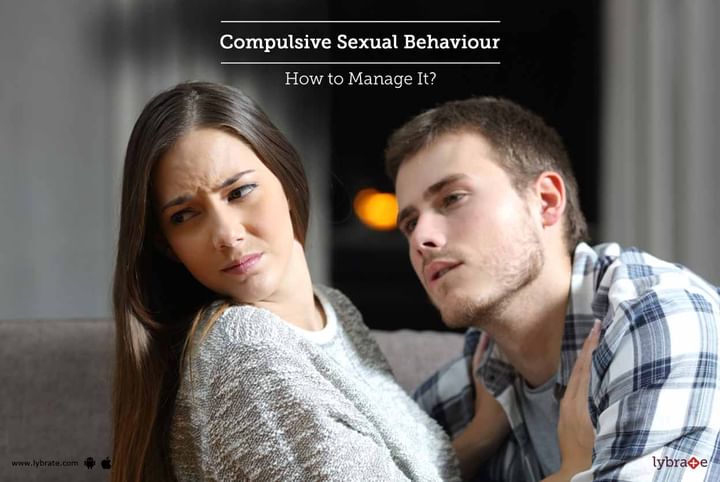Compulsive Sexual Behaviour - How to Manage It?
One of the emerging psychiatric disorder that has significant medical and psychiatric consequences is compulsive sexual behavior or hypersexuality, is an obsession with sexual thoughts in which people cannot manage their sexual behavior. It may involve a commonly enjoyable sexual experience as self-stimulation which becomes an obsession. The person suffering from the condition may also get involved in sexual behaviors that are outside the bounds of commonly accepted conduct like paying for sex or having extramarital affairs.
Untreated compulsive sexual behavior damages one’s self-esteem, health, job, relationships, and career. However, with treatment and self-help, one can manage compulsive sexual behavior and learn to manage one’s urge. Males are more likely to be unfaithful than females because they have stronger sexual impulses and weaker self-control. Compulsive sexual behavior symptoms vary in type and severity. During intense sexual impulses, one feels as if they're beyond control. This is the first and the most common symptom as the patient uses compulsive sexual behavior as an escape route for problems like loneliness, depression, anxiety, and stress. One has trouble establishing and maintaining emotional closeness, even if one is married or in a committed relationship.
The treatment for compulsive sexual behavior involves psychotherapy and medications. A primary goal of treatment is to help one manage urges and reduce excessive behaviors while maintaining healthy sexual activities. If one has compulsive sexual behavior, one may need treatment for the mental health condition. People with compulsive sexual behavior often have alcohol or drug abuse problems or a mood disorder such as depression.
Counselling sessions can help one learn how to manage one’s compulsive sexual behavior. Intensive treatment programs for compulsive sexual behaviours focus on identification of core triggers and beliefs about sexual addiction. It assists in the development of healthier choices and coping skills to minimize urges and deal with the preoccupation of sexual addiction. Psychodynamic psychotherapy can prove to be very useful as it focuses on increasing one’s awareness of unconscious thoughts and behaviours, and developing new insights into their motivations. Resolving conflicts using this therapy is also recommended. The other kind of treatment program is cognitive behavioural therapy. This therapy helps one to identify unhealthy, negative beliefs and behaviors and replace them with healthy, positive ones. Family therapy and couples therapy may restore trust, minimize shame and guilt thus establishing a healthy sexual relationship between partners.
Medications include anti-depressants like selective serotonin reuptake inhibitors, mood stabilizers, and anti-androgens have also been used to treat compulsive sexual behavior. Anti-androgens are prescribed as it reduces the biological effects of sex hormones in men thus reducing sexual urges. Luteinizing hormone is also prescribed as it reduces obsessive sexual thoughts by reducing the production of testosterone. Anti-seizure medications, naltrexone, and medications which decrease male hormones have been found to decrease the compulsive urges and impulses associated with sexual addictions for some sufferers. If you wish to discuss any specific problem, you can consult a psychiatrist.



+1.svg)
